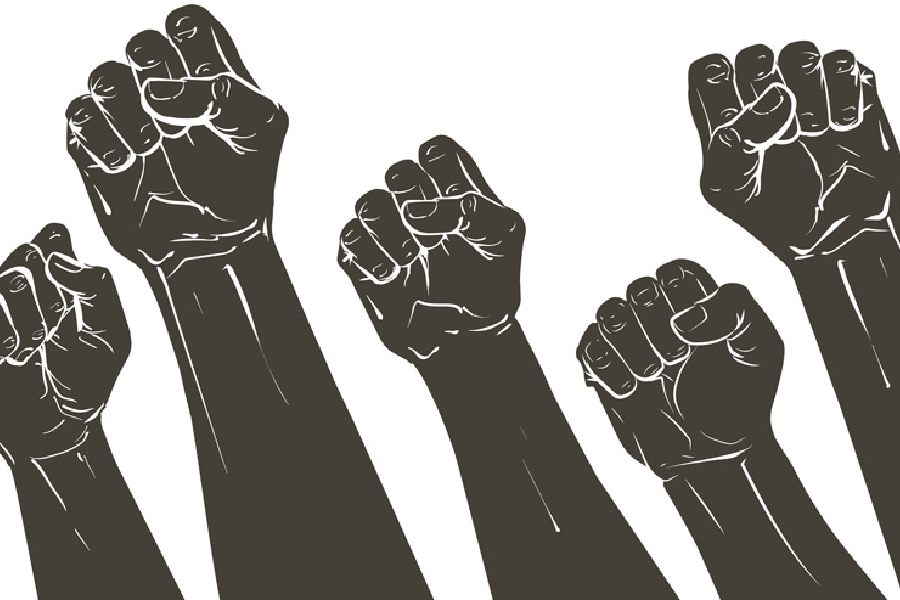Protests have broken out at universities against the passage of the Waqf (Amendment) Bill, with the demonstrating students calling it an infringement on Muslims' rights.
Jawaharlal Nehru University and the Jamia Millia Islamia in Delhi as well as the Central University of Hyderabad witnessed protests last week.
Jamia saw heavy police deployment on Thursday and Friday, apparently to prevent protests. In December 2019, the police had entered the campus and allegedly assaulted students who were protesting against the Citizenship (Amendment) Bill — another legislation criticised as anti-Muslim.
"The university turned into a fortress despite being meant to provide space for free discussion and protests," a faculty member said.
A Jamia student said that protests were still held on Friday near Gate no 7. The CPIML Liberation-backed All India Students Association was the main organiser. "The Jamia administration tried to prevent the protests by shutting all the gates," a student said.
"But students still gathered in numbers and the administration finally opened the gates. The students burnt copies of the bill and condemned the government’s communal motive."
JNU students' union president Dhananjay said a protest was held on the campus on Wednesday. "The (new) law is unconstitutional. It violates equality and must be withdrawn. We will organise more protests," he said.
A student of the Central University of Hyderabad said protests were held in the south and north campuses. "We protested against the bill since we feel the government will easily claim the waqf properties taking advantage of the lack of records. This will create communal tension," he said.
Abhay Kumar, a scholar who wrote his doctoral thesis on Muslim personal law at JNU, cited B.R. Ambedkar’s comment that the mark of a successful democracy was that it protected the rights of minorities. "The provisions to include non-Muslims in the Waqf Council and state waqf boards have created anxiety among Muslims," Kumar said.
"The fear is that people with a Hindutva background will be inducted into these bodies and they may not be sympathetic to their (Muslims') cause."
Kumar regretted that the power of the waqf tribunals, which decide disputes relating to wakf properties, has been diluted and greater power given to the district magistrates.
"Since the government is itself a party in a legal case concerning encroachment on waqf land, and the district magistrate has been entrusted with greater power, there will be a conflict of interest. Muslims fear that encroachments will increase and their interest will be compromised," he said.
Kumar said the Sachar panel had recommended that the government recruit up to 200 Grade A officers through the UPSC to manage waqf properties, and that the tribunals have full-time presiding officers. However, the government has ignored these suggestions, he said.
A retired bureaucrat said the provision allowing non-Muslims to become chief executive officers of the state waqf boards amounted to interference in Muslims' religious affairs.










